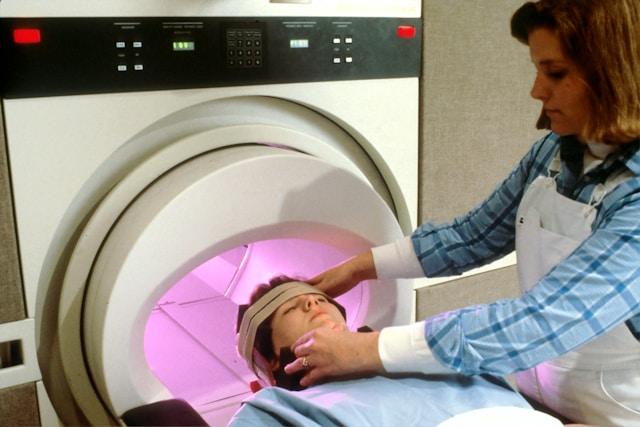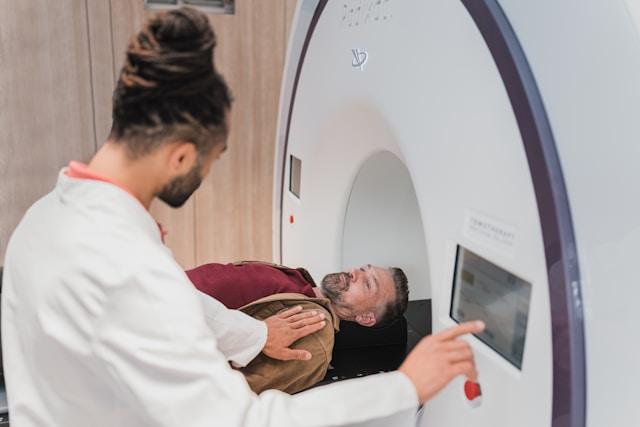-
-
How can lifestyle adjustments help in managing nerve pain post-surgery?
-
Are there any at-home treatments that can help alleviate nerve pain after surgery?
-
What medical interventions are available for treating severe nerve pain after surgery?
-
How can patients prevent complications associated with nerve pain following surgery?
Did you know that up to 85% of surgical patients experience nerve pain post-surgery due to nociception during the perioperative period? This often-overlooked complication, such as postsurgical pain, can significantly impact recovery and quality of life. Dealing with nerve pain can be frustrating and debilitating, affecting daily activities and overall well-being. Understanding the causes, symptoms, and treatment options for nerve pain after surgery is crucial for effective management and relief. Stay tuned to learn more about this common but underestimated challenge.
Key Takeaways
-
Identifying Nerve Pain: Recognize the signs of nerve pain after surgery early on to seek appropriate treatment promptly.
-
At-Home Treatments: Utilize heat or ice packs, gentle exercises, and over-the-counter pain medications to alleviate nerve pain at home.
-
Medical Interventions: Consult with healthcare professionals for specialized treatments like physical therapy, medications, or nerve blocks for severe nerve pain.
-
Lifestyle Adjustments: Implement ergonomic changes, stress-reduction techniques, and a balanced diet to manage nerve pain in daily life effectively.
-
Coping Strategies: Engage in relaxation techniques, mindfulness practices, and support groups to cope with the emotional and mental impact of persistent nerve pain.
-
Preventing Complications: Stay informed about potential complications of nerve pain post-surgery and follow medical advice to minimize risks and ensure a smoother recovery process.
Identifying Nerve Pain

Common Symptoms
Identifying burning, shooting, or electric shock pain as common symptoms helps in recognizing nerve pain. Loss of movement and numbness in the affected area is a severe symptom indicating nerve issues. Stimuli like light touch may also trigger changes in nerve pain systems, causing discomfort.
Recognizing Signs
Observing changes in sensation or movement post-surgery is crucial to identifying nerve pain. Persistent pain that does not improve over time may indicate a neuropathic pain state due to nerve damage or injury, changes in the brain. Any unusual sensitivity to touch or temperature should be noted as a potential sign of nerve damage.
When to Seek Help
Consulting a pain doctor early is essential for effective treatment of nerve pain after surgery. Seeking medical attention promptly is necessary if symptoms worsen or become unbearable. Delaying seeking help when experiencing severe nerve pain can lead to complications and prolonged discomfort.
Understanding Causes
Surgical Impact
Nerve pain after surgery is commonly caused by damage around the surgical area. This damage can result from the manipulation of tissues during the procedure. Certain surgeries, such as spinal or orthopedic surgeries, have a higher incidence of nerve pain due to their complexity and proximity to delicate nerves. The duration and recovery from nerve pain post-surgery can vary depending on factors like the extent of nerve damage and individual healing processes.
Nerve Injury Types
It’s crucial to differentiate between nerve compression and nerve transection injuries when understanding nerve pain after surgery. Nerve compression occurs when a nerve is squeezed or compacted, leading to pain and potential dysfunction. In contrast, nerve transection involves the complete severing of a nerve, resulting in more severe symptoms and longer recovery times. The varying degrees of nerve damage post-surgery may significantly impact a patient’s quality of life and overall recovery process.
At-Home Treatments
Self-Care Techniques
Practicing relaxation techniques such as deep breathing and meditation can effectively manage nerve pain. These methods help reduce stress levels, which may exacerbate pain sensations. Engaging in gentle exercises like walking or yoga can promote nerve healing by increasing blood flow to the affected area. Adequate rest and quality sleep are crucial for better pain management, as they allow the body to repair and regenerate damaged nerves.
Home Remedies
Consider using topical treatments such as lidocaine patches or creams for local relief of nerve pain, as they may provide effective pain relief. These products work by numbing the area where they are applied, providing temporary relief from discomfort. Exploring herbal remedies like arnica or capsaicin cream, as well as CBD topicals, may offer additional benefits in alleviating nerve pain. However, it’s essential to exercise caution with home remedies due to the lack of regulation and varying efficacy levels among individuals.
Medical Interventions
Medication Options
Prescription drugs like gabapentin are commonly used in treating nerve pain after surgery. Consult a healthcare provider for guidance on the appropriate dosage and duration of medication. Be aware of potential side effects such as dizziness or drowsiness that may accompany these medications. Antidepressants may also be beneficial in managing postoperative nerve pain by altering pain perception.
Physical Therapy
Engaging in physical therapy sessions can significantly improve nerve function and aid in the recovery process. A customized exercise plan tailored to target muscles around the affected area is crucial for enhancing strength and flexibility. Working closely with a physical therapist allows for personalized care to maximize mobility and alleviate pain effectively.
Surgical Solutions
For severe cases, surgical interventions such as nerve retraction may be considered to address persistent nerve pain post-surgery. Spinal decompression procedures play a vital role in relieving pressure on nerves, thereby reducing pain and promoting healing. It is essential to have thorough discussions with a specialist to explore the possibility that surgery may be an option based on individual circumstances.
Lifestyle Adjustments
Activity Modifications
Modify your daily activities to prevent worsening nerve pain after surgery. Implement ergonomic changes to reduce strain on nerves, such as using supportive cushions or chairs. Prioritize gentle movements over strenuous activities to avoid exacerbating the pain.
Incorporate foods rich in B12 into your diet to support nerve repair and regeneration. Maintaining a balanced diet is crucial for promoting overall nerve health and function. Avoid consuming inflammatory foods that can potentially worsen nerve pain and delay the healing process.
Diet Changes
-
Pros:
-
Supports nerve repair
-
Promotes overall nerve health
-
-
Cons:
-
Requires dietary adjustments
-
May need guidance from a nutritionist
-
Coping Strategies
Stress Management
Practicing stress-relief techniques is crucial in alleviating nerve pain. Techniques like deep breathing and progressive muscle relaxation can significantly reduce discomfort. Mindfulness practices, such as meditation or yoga, help to calm the mind and body, easing nerve-related stress. Engaging in activities like walking in nature or listening to calming music promotes relaxation and enhances mental well-being.
Support Systems
Seeking support from family and friends plays a vital role in coping with nerve pain after surgery. Their understanding and encouragement may positively impact the recovery process. Joining support groups or online communities tailored for individuals experiencing similar challenges provides a sense of belonging and shared experiences. Considering counseling or therapy sessions can effectively address emotional challenges that may arise during the recovery journey.
Preventing Complications
Follow-Up Care
Regular follow-up appointments with healthcare providers may help monitor your recovery progress effectively. These visits ensure timely interventions if complications arise. Stay proactive in scheduling and attending these appointments to address any emerging issues promptly.
Keep a close eye on any changes in symptoms post-surgery. Report any new or worsening symptoms, especially related to nerve pain, to your doctor immediately. Early detection and intervention can prevent potential complications and promote a smoother recovery process.
Stay informed about the long-term care plans for managing nerve pain after surgery. Understanding the strategies and treatments available can empower you to take control of your recovery journey effectively. Engage with your healthcare team to create a comprehensive care plan tailored to your specific needs.
Warning Signs
Recognizing signs of infection or deteriorating nerve damage is crucial for early intervention. Watch out for symptoms such as increased redness, swelling, or warmth around the surgical site. Any signs of fever or drainage should be reported promptly to prevent further complications.
Be vigilant about sudden changes in pain intensity or sensation in the affected area. Any unusual sensations or severe pain should not be ignored but brought to the attention of your healthcare provider immediately. Timely action can prevent potential long-term consequences of untreated nerve pain.
If you experience alarming symptoms such as persistent numbness, weakness, or loss of function post-surgery, seek immediate medical attention. Prompt evaluation by healthcare professionals can help determine the underlying cause and provide appropriate treatment to prevent further complications.
Recovery Journey
Healing Timeline
Nerve pain following surgery is a common occurrence that can persist for weeks to months after the procedure. It’s crucial to understand that recovery is a gradual process, with improvements in pain levels and mobility happening over time. Tracking these changes can help in monitoring progress and identifying any potential issues that may arise during the healing journey.
-
Be patient with the healing process as nerve regeneration takes time.
-
Monitor any changes in pain levels and mobility regularly to track improvements.
-
Consult healthcare providers if there are concerns about the recovery timeline or persistent pain.
Expectations vs. Reality
Managing expectations regarding nerve pain recovery post-surgery is essential. While some individuals may experience rapid improvement, others may face challenges that prolong the recovery period. It’s important to acknowledge that responses to treatment vary among patients, and each individual’s healing journey is unique.
-
Prepare for potential setbacks along the recovery path and adjust expectations accordingly.
-
Understand that recovery timelines can differ based on various factors such as the type of surgery and overall health condition.
-
Engage in open communication with healthcare providers to address any concerns or unexpected developments during the recovery process.
Patient Stories
Success Cases
Patients who effectively managed postoperative nerve pain often shared insightful experiences. One individual, after a successful surgery, diligently followed prescribed medications and physical therapy routines. Over time, their pain decreased significantly, allowing them to resume daily activities. Such cases highlight the importance of consistent treatment adherence.
In another instance, a patient incorporated alternative therapies like acupuncture and meditation into their recovery plan. These complementary approaches, combined with traditional medical interventions, contributed to a quicker pain relief process. It showcases the benefits of a holistic approach in managing postoperative nerve pain.
Success stories serve as beacons of hope for those struggling with similar challenges. They offer practical strategies and demonstrate that recovery is possible with dedication and a comprehensive treatment plan.
Challenges Faced
For some patients, ongoing nerve pain management presents significant hurdles. Limited access to specialized healthcare providers can delay proper diagnosis and treatment initiation. This delay prolongs the suffering and impedes the recovery process for individuals dealing with postoperative nerve pain.
Emotional distress is another challenge faced by patients navigating chronic pain conditions. The constant discomfort and limitations imposed by nerve pain can lead to feelings of frustration and hopelessness. Coping mechanisms such as mindfulness practices or support groups become essential in addressing these emotional struggles.
Navigating through the complexities of chronic pain requires patience and resilience on the part of both patients and healthcare providers. Understanding the multifaceted nature of postoperative nerve pain is crucial in developing personalized treatment plans tailored to each individual’s unique needs.
Summary
You’ve now gained insights into identifying nerve pain, understanding its causes, exploring at-home treatments, medical interventions, lifestyle adjustments, coping strategies, preventing complications, following the recovery journey, and hearing patient stories. By arming yourself with this knowledge, you’re better equipped to navigate the challenges of nerve pain after surgery. Remember to consult with healthcare professionals for personalized advice and treatment plans. Stay proactive in managing your symptoms and advocating for your well-being. Your journey to recovery is unique, but with informed decisions and a supportive network, you can enhance your quality of life post-surgery.
Frequently Asked Questions
What are the common causes of nerve pain, numbness, after surgical trauma from surgical procedures and anesthetics?
Nerve pain after surgery can be caused by factors such as nerve damage during the procedure, inflammation, scar tissue formation, or improper healing. Identifying the specific cause is crucial for effective treatment.
How can lifestyle adjustments help in managing nerve pain post-surgery?
Lifestyle adjustments like maintaining a healthy diet, regular exercise, stress management techniques, and proper sleep can contribute to reducing nerve pain intensity and improving overall well-being during the recovery process.
Are there any at-home treatments that can help alleviate nerve pain after surgery with local anesthetics?
At-home treatments like applying ice or heat packs, gentle stretching exercises, practicing relaxation techniques, and using over-the-counter pain medications as directed by your healthcare provider can provide relief from nerve pain post-surgery.
What medical interventions are available for treating severe nerve pain after surgery, anesthesia?
Medical interventions for severe nerve pain may include prescription medications, physical therapy, nerve blocks, spinal cord stimulation, or in some cases, surgical procedures to address the underlying cause of the persistent nerve pain.
How can patients prevent complications associated with nerve pain following surgery?
Patients can reduce the risk of complications by closely following their healthcare provider’s instructions regarding post-operative care, attending follow-up appointments, reporting any unusual symptoms promptly, and actively participating in their recovery journey to optimize outcomes.






















